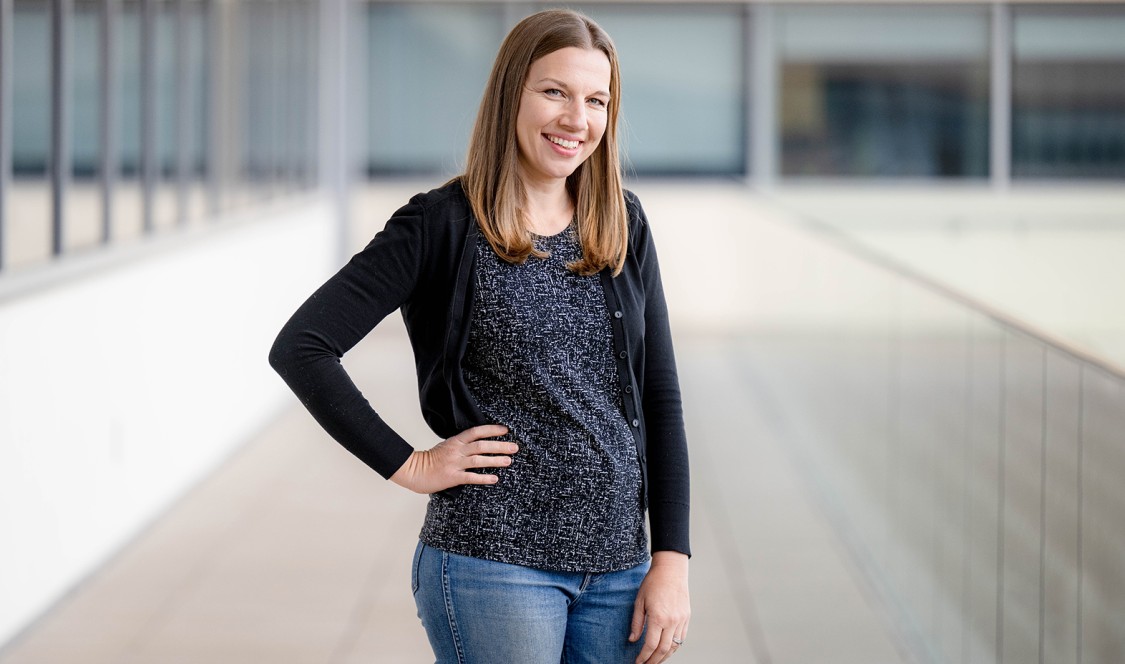In a newly published study, Prof. Jessamyn Schaller found that the shift to remote schooling during the pandemic led to a decrease in teen suicides. The study’s results have resonated, garnering attention from notable national publications such as The Economist and Forbes.
Published by the National Bureau of Economic Research in December, Schaller hopes the research paper, “In-Person Schooling and Youth Suicide: Evidence from School Calendars and Pandemic School Closures,” will help increase awareness of the factors that can prevent teen suicide.
Schaller and her co-authors reported that, “teen suicides plummeted in March 2020, when the COVID-19 pandemic began in the U.S. and remained low throughout the summer before rising in Fall 2020 when many K-12 schools returned to in-person instruction.”
“The outcome is a bit surprising at first when you think about it,” Schaller said. “Because I think the general narrative was that mental health got worse during the pandemic universally — for adults and for children. And I think that it is still true that on average mental health was worse.”
Schaller cautions, however, that the study does not show that school is bad for kids. “There are many, many studies in economics and other fields basically showing the enormous benefits of schooling on health and mental health for kids,” she said. “Our study is saying that for kids who are on the extreme margin and at risk of suicide, that bullying associated with in-person schooling is an important mechanism for suicide.”
An associate professor in the Robert Day School of Economics and Finance, Schaller has found the interest in her research paper “gratifying,” especially given the urgency of finding resources to avert teen suicide and “support students who are being harassed at school.”
Using data from the National Vital Statistics System from 1990-2019, Schaller and her colleagues documented the historical association between teen suicides and the school calendar to establish that teen suicides are highest when schools are in session versus the summer months. Then they showed that this pattern dramatically changed in 2020, as the COVID-19 pandemic began in the U.S. with the suicide rates remaining low throughout the summer before rising in Fall 2020 when many K-12 schools returned to in-person instruction. Using county-level variation in school re-openings in Fall 2020 and Spring 2021 Schaller and her fellow researchers found that returning from online to in-person schooling was associated with a 12-to-18 percent increase in teen suicides.
These findings fit into her overall research focus, which Schaller describes as relating to “child health and well-being. I've done a lot of research in the past on labor market shocks and recessions and how those affect child outcomes.”
For Schaller and her research colleagues, taking on the impact of COVID was “a natural” to study. “We actually started with a project that looked at school closures and re-openings during COVID and how they affected labor supply, childcare restraints, and parental employment,” she said. “This was our follow-up project, to look at children's mental health and in particular suicide outcomes for teenagers.”
Schaller incorporates her research into the classes she teaches at CMC, including, “Introduction to Economics,” and this spring, “Health Economics,” which is her favorite topic to explore.
“We spend a lot of time in that class trying to understand socioeconomic disparities in health and trying to understand why there's such a strong correlation between health and income in the U.S.,” she said. “That's an area that I really enjoy teaching and I find the students really respond to it.”
Schaller’s own pursuit of these topics was motivated by “Poverty and Income Distribution,” a class taught by Prof. Michael Steinberger that she took at Pomona College her senior year, working towards her bachelor’s degree in Economics. “That class inspired me to go to graduate school in economics at UC Davis,” she said.
Now back in Claremont teaching at CMC, she said, “is such a dream. I really love it here. It just feels like home for me. And it's been just so rewarding to come back as a professor and inspire students in the same way that I was inspired by faculty when I was a student.”

